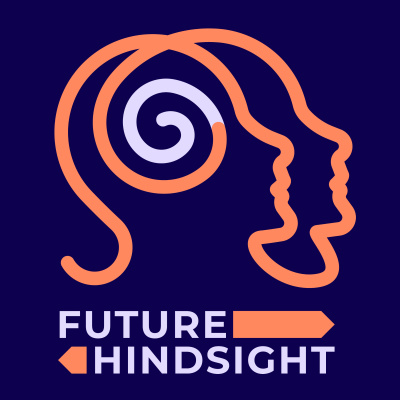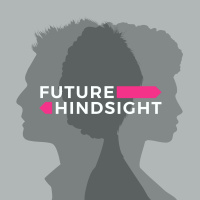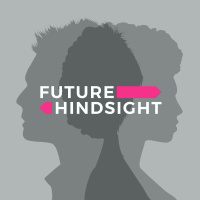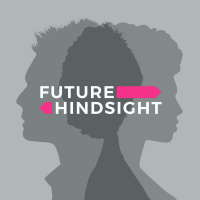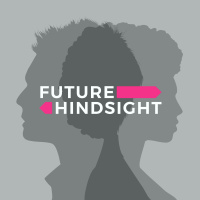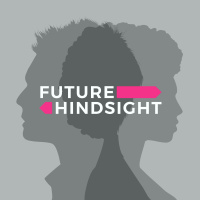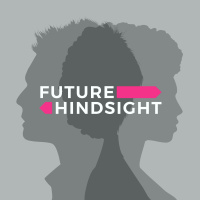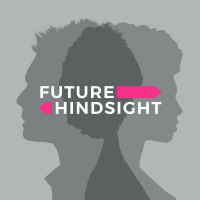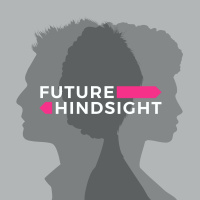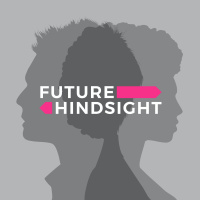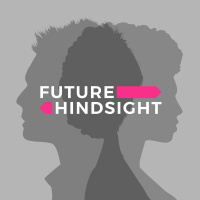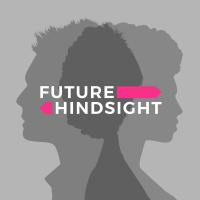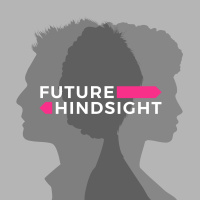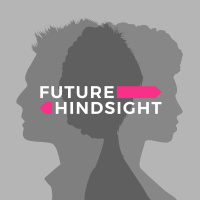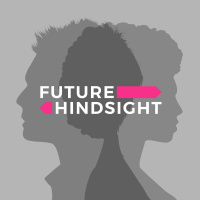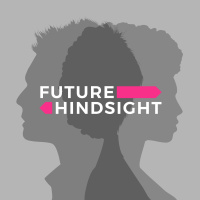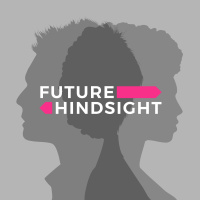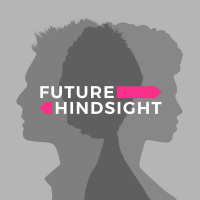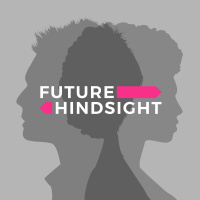Synopsis
Exploring the intersection of civic engagement and civil discourse.
Episodes
-
Implicit Teacher Bias: Dr. Walter Gilliam
04/03/2021 Duration: 35minImplicit Bias in Preschool Teachers In a study to detect implicit bias, preschool teachers were instructed to watch a video of four young children (black and white, boy and girl) and identify potential behavioral issues. By tracking their eyes, the study showed that the teachers watched the black children more closely for behavioral problems than white children. When asked, teachers said they thought they had a gender bias and watched the two boys more closely. In fact, the defining factor was race. Preschool Expulsion Preschool children, ages 3 and 4, are expelled at a rate more than three times that of K-12 combined. More shockingly, they are expelled for normal, age-appropriate behavior, such as running in hallways or being rambunctious. Preschool programs are supposed to prepare children how to behave in school; instead, they often punish children who don’t know the very rules they are meant to teach. Expulsion at such a young age can have wide-ranging negative impacts on a child. Free, universal Pre-Kind
-
Unapologetically Indigenous: Sarah Pierce and Amy Sazue
25/02/2021 Duration: 33minAchieving Education Equity Championing Indigenous students to be successful in school systems starts with school curriculums – telling the accurate history of the United States – and leadership that represents the Indigenous Americans they serve. Schools need to create spaces where Indigenous students can be unapologetically Indigenous by building immersion units and hiring Indigenous teachers. Most importantly, Native leaders, educators, and students need to be involved in each step of the process. Education Today The US education system was built to eliminate the Indigenous, and curriculum choice continues to perpetuate the silencing and erasure of Indigenous history. As a result, Native students are often subjected to discrimination by white teachers and administrators, and suffer high disciplinary rates. Native students in South Dakota today have one of the lowest achievement rates, graduation rates, and even mobility rates. Though they add up to about 10% of South Dakota public school students, only 1.6%
-
Separation and Supremacy: Laura Briggs
18/02/2021 Duration: 36minChild Separation Policy’s History The United States has a long history of using child separation to further racial nationalism. The two main groups targeted by these terrorizing policies were African Americans and Native Americans. Enslaved families were routinely split up, and Black families continue to suffer from child separation today thanks to 20th century laws like Suitable Home Rules and other similar legal mechanisms. Children of Indigenous Peoples were forcibly removed and put in boarding schools. The current separation of Central American children at the southern border follows these precedents. Boarding Schools The removal of Native children was originally considered a progressive policy to end the Indian Wars. Putting Indigenous children in boarding schools was touted as a non-violent solution to ending a ‘native problem’ at the time of westward expansion. The true ultimate goal was to turn Native children into a servant class, so it is not surprising that these boarding schools were rife with abu
-
Unions & Racial Justice: Tamara Lee
11/02/2021 Duration: 34minColorblind Organizing US unions traditionally operate on a 'colorblind' approach to organizing, but focusing on class issues alone often fails to acknowledge that class is also racially coded. Unions need to combat racial disparities and inequality within its own membership and leadership. Diverse leadership brings lived experience to decision-making and problem-solving that can work against racist and classist discrimination. Union Innovation Innovation in organizing helps better serve union members. 'Whole-union organizing' looks at all the problems facing a union demographic. These may include immigration, police violence, and institutional safety issues, as well as race and pay issues. Working to alleviate these types of problems improves members' lives. Addressing issues of justice, in addition to economics, is key to the future of the labor market and labor movements. New Labor Laws & Equity Creation Current labor laws are 90 years old and need to be updated and reimagined. New laws should strive to
-
State-Sponsored Segregation: Richard Rothstein
04/02/2021 Duration: 35minGovernment Created Segregation The US government codified overt segregation in housing policy at the beginning of the 20th century. The New Deal created the Federal Housing Administration, which required all new public or government-backed housing developments to be segregated. Zoning laws and plans around the country segregrated urban areas that were already integrated, and relegated African-Americans to less desirable areas. The government sought to solve the housing crisis after WWII by underwriting the development of suburbs for whites only. It also mandated racial covenants against African-Americans to secure housing loans and created red-lining and income-based discrimination to segregate urban areas. Unequal Access African Americans were excluded from government programs designed to create homeownership by being denied access to purchase a suburban home and to qualify for a mortgage. The Home Owners Loan Corporation provided government-backed, low-interest loans to whites who wanted to buy a house but
-
Ending The Filibuster: Eli Zupnick
02/02/2021 Duration: 53minWhat is the Filibuster? In the Senate, a bill passes if it receives more than half of the vote. To bring a vote to the floor, the Majority Leader asks Senate members if anyone has any objections before moving to a simple majority vote. If any member objects, the filibuster comes into play. The filibuster forces a debate on the bill. A ‘cloture’ vote must be taken to end this debate and move forward with the original vote. This cloture vote requires 60 votes, significantly more than is needed to pass the legislation. Since any senator can object to any bill and force a debate that can only be overcome with 60 votes, the minority party can effectively scuttle any legislation without a vote if they control 41 or more seats. Undemocratic Filibuster Proponents of the filibuster argue that it promotes bipartisanship because it forces the majority party to negotiate its way out of the cloture vote. The Senate is already an undemocratic institution because it favors rural (mostly red) states and is not based on popul
-
Critical Race Theory: Mari Matsuda
28/01/2021 Duration: 36minCritical Race Theory Critical Race Theory is a theory of justice designed to respond to the endemic racism in America’s legal system. It places intersectional anti-racism at the center of analysis of law, politics, and power. It examines the origins of the idea of race and seeks to understand how institutions continue to perpetuate racism today. Although slavery and the genocide of Indigenous people have ceased, these past practices continue to inform our institutional systems and create injustice. Critical Race Theory reveals unconscious bias and systemic disenfranchisement as legacies of racist attitudes and legislation. Inequality as a Threat to Freedom Inequality harms our freedoms in many ways. Corporate monopolization harms our freedom to choose where we get our food, products, and information. Inequality in the form of sexism and racism harms our freedom of expression, such as valuing some people’s ideas over others. Education inequality can harm our freedom to learn, communicate, and succeed. Income i
-
White Too Long: Robert P. Jones, Ph.D.
21/01/2021 Duration: 32minThe Lost Cause Before and during the Civil War, Southern Baptist leaders argued that slavery was just and the slaveholding South represented the pinicle of human civilization. After the South lost, they began to espouse the idea of the Lost Cause—that the war on Earth may be lost, but God would ultimately redeem the South with the Second Coming. This idea became widespread throughout the South, and can still be seen today in Confederate Monuments like the one in Richmond, VA which reads “God Will Vindicate’ in Latin, a direct reference to the idea of the Lost Cause, and the salvation awaiting Southerners. White Churches Perpetuate White Supremacy The Southern Baptist Church was founded on white supremacist principles and helped maintain a quasi-caste system where white Christians benefited. Other denominations like Protestant and Catholic display similar blind spots to—and even affinities for—white supremacy. Regular churchgoers are no less racist than the average American, and church-going evangelicals hold
-
Surveillance Capitalism: Shoshana Zuboff
08/01/2021 Duration: 45minSurveillance Capitalism Surveillance Capitalism is the dominant economic logic in our world today. It claims private human experience for the marketplace and turns it into a commodity. Vast amounts of personal data are necessary -- often harvested without our knowledge or consent –- in order to predict future behavior. Surveillance capitalists create certainties for companies by modifying people's behavior. Instrumentarian Power Instrumentarianism seeks to modify, predict, monetize, and control human behavior through the instruments of surveillance capitalism, our digital devices. Having mined all of our data, instrumentarians can tune and herd users into specific actions through triggers and subliminal messaging. It is ultimately a political project intended to install computational governance instead of democratic governance. Protecting Your Privacy A myriad of programs and apps can block tracking and scramble your location, making your behavioral data less accessible or even inaccessible. Since instrumenta
-
Fixing Public Schools: Ted Dintersmith
22/12/2020 Duration: 32minInnovation in the Classroom Classroom innovation stems from teachers and students working together to pursue subjects that excite students to learn. Examples include allowing students to design robots and make documentaries about local landmarks. In the age of Zoom learning, keeping students engaged by letting them solve community problems or pursue independent learning goals will achieve much more than endless worksheets and standardized test prep. Standards V. Standardized Tests Implementing and upholding academic standards are not the same as demanding high scores on standardized tests. Engaging and exciting students about a topic should be the focus, like teaching students to think critically like scientists. Information retention rates are abysmal when the emphasis is to just regurgitate scientific facts for a test. Other basic standards should include knowing how democracy works, reading, writing, and thinking critically. High School Education A high school education should prepare all Americans for a l
-
Reimagining Higher Education: Leon Botstein
17/12/2020 Duration: 34minDemocracy and Education Democracy and education are inextricably linked. A democracy can only work when voters have an open mind, the ability to think critically, and are tolerant of others and their beliefs. A good education should be designed to cultivate these instincts, and the result should be we well-rounded citizens who respect each other, engage in healthy public discourse, and are able to think critically to uncover lies and bad ideas. Education should prepare all citizens to properly participate in civic life. The 4 Pillars of Good Education First, students should gain a firm grasp on language, and be able to read and write critically, uncover lies and discuss opinions respectfully. Second, students need strong mathematic, scientific, and computational literacy. Third, we need to understand and be able to think critically about the past, because the way we understand history has an impact on what we do in the future. Finally, we need to encourage creative thinking, and learn to understand the beauty
-
Ending the Counter-Revolution: Bernard Harcourt
10/12/2020 Duration: 38minCounterrevolution Since 9/11 and the wars in Iraq and Afghanistan, US warfare has focused on counterinsurgency. America now uses this counterrevolutionary playbook to govern domestically. Counterrevolutionary theory identifies a passive majority in all populations and a small insurgency. The first step is to brutally eliminate the rebellion, and then win over the passive majority. Using counterrevolutionary measures necessitates creating an internal enemy—for instance, Muslims, immigrants, minorities, or ANTIFA. Counterinsurgency establishes brutal violence as a policy, which quickly becomes the norm, as we’ve seen with the current level of government violence directed at US citizens. Legalizing Brutality America is a profoundly legalistic country, which looks to the law for the protection of rights. At the same time, it also has a long history of rendering questionable actions legal. The CIA redefined torture under the Bush Administration to require organ failure, which legalized many torture techniques that
-
Reimagining Law Enforcement: Norm Stamper
03/12/2020 Duration: 38minCommunity Policing The future of public safety is community police partnership. Stamper suggests a plebiscite in which neighborhoods elect representatives to work side by side with the police department. These citizens would be involved in every single aspect of modern policing from setting policy, crafting procedures, selecting new police officers, developing the curriculum for police academy training, and partnering with those best equipped to deal with substance abuse, homelessness, and mental illness. Cop Culture The structure of American policing is top-down, paramilitary, bureaucratic, and antagonistic to democratic values. Patterns of behavior are institutionalized through interactions in locker rooms, patrol cars, and other unmonitored places. The paramilitary structure of police forces leads to an “us-vs-them” mentality, which results in a toxic culture of distrusting civilians. Undoing this culture begins with undoing the existing structure of the organization and reshaping it to meet the needs of c
-
The Precarity of Taxi Work: Veena Dubal
24/11/2020 Duration: 36minProposition 22 Prop 22, the most expensive California ballot initiative in history, carves out app-based gig economy workers as a new employee class that lacks the benefits and protections that other workers in California get. Prop 22 also makes it more difficult for drivers and delivery workers to unionize. Uber, Lyft, Doordash, and other app-based services threatened their workers with lack of flexibility and job loss. They also spent more than $200M to persuade voters. The passage of Prop 22 is a significant loss for labor law, and copycat legislation in other states is already following. Taxi Unions The San Francisco chauffeurs’ union was powerful and effective because it had 100% participation from taxi drivers and built a strong collective identity for drivers. It even had a union hall! Unions negotiated fair contracts – wages and hours – and prevented oversaturation in the taxi market. For most of the 20th century, US taxi drivers were unionized. Today, most app-based drivers are completely atomized, l
-
The Future of Antitrust: Zephyr Teachout
20/11/2020 Duration: 36minMonopolies are Anti-Democratic A monopoly is a company that has the power to set the terms of interactions, from the pricing of consumer goods to interactions with suppliers and resolving disputes. The most insidious and anti-democratic example is private arbitration, a judicial system where the parties to the suit pay the judges. Large companies force employees and even customers to litigate all grievances through arbitration courts, making a mockery of justice and infringing upon our civil rights. In essence, monopolies exert a form of private governing power and control over citizens within our democracy. US History of Trust-Busting America has a long history of trust-busting, dating back to the late 19th century. At that time, thousands of antitrust leagues around the country verified that companies were not controlling large market shares. Anti-monopolism was once a vital facet of American political activism, and it could be again. US antitrust law still exists; it just isn't being enforced—and hasn't be
-
A Keynesian Future: Zach Carter
13/11/2020 Duration: 33minKeynes's Goals Keynes concerned himself with his day's most significant problems: WWI and WWII, the rise of fascism and revolution, and the Great Depression in the United States. He believed that assuaging fears about an uncertain future was most important, and that a more equal society would also be more secure from deflation, deprivation, and dictatorship. He aimed for policies that would grapple with crisis and uncertainty. Economics as Politics Keynes firmly believed that economics was an extension of politics and government, not a separate entity that existed outside of the governmental sphere of influence. Governments needed to manage their economies to ensure success, by controlling wages and working conditions, as well as setting interest rates and fiscal policy. Economics and monetary policy were political tools to achieve healthy and stable societies. A Keynesian Future A Keynesian in the incoming Biden administration would prioritize solving the problems of climate change, COVID, and economic inequ
-
Season 12 Trailer
09/11/2020 Duration: 02minThis is a thought-provoking season of visionary and practical ideas to reimagine our future in a post pandemic and post trump world. We cover everything from needing to be civically engaged all the time, which is to say in between elections, education, policing our communities, and having the courage to think big when it comes to rebuilding our economy.
-
Lasting Civic Engagement: Maria Yuan
06/11/2020 Duration: 30minCivic Engagement Online and In-Person Technology can make participating in democracy easier than ever before because it’s scalable and makes it possible for everyone’s voices to be heard. However, civic engagement must also be done with human connection and in person, like in community conversations, town halls, and organizing. IssueVoter uses its online platform to motivate users to perform civic engagement in the real world. Thirty percent of IssueVoter users say the platform is the reason they voted, showing that the more information the user has, the more he or she is motivated to take action. Fostering Accountability IssueVoter fosters civic engagement in between elections by making it easier for users to know what bills are being proposed in Congress, and sending their opinions on those bills to their representatives. Then, users are informed how their representatives voted. It turns out that representatives aren’t always in alignment with their constituents. Knowing how your elected representatives vot
-
October Surprise: Devlin Barrett
30/10/2020 Duration: 38minOctober Surprise The term ‘October Surprise’ refers to a type of dirty trick that comes so late in the election calendar that a candidate does not have the time or space to respond, and voters don’t have the time to consider what it might mean. Comey’s letter to Congress a mere 11 days before Election Day 2016, announcing a renewed investigation into Hillary Clinton’s emails, is one of the most significant October Surprises on record. Trump contracting COVID-19 in October does not fit the description because a political opponent or third party did not orchestrate it; it was merely a surprising event in October. Restoring Trust in the FBI In the aftermath of 9/11, the FBI pivoted from criminal justice to national security. National Security agents soon came to run the bureau, instead of agents whose focus was on law enforcement, including in high-profile political cases. Comey’s security-focused inner circle lacked the insight of agents with such expertise, who might have cautioned him against his investigati
-
Building Authoritarian Power: Nathan Stoltzfus
16/10/2020 Duration: 33minLegitimacy Hitler is one of the early modern autocrats for whom legitimacy was crucial to his claim to power. He recognized the importance of including the people and representing himself as presenting the will of the people. Being legitimately elected provided Hitler with a mandate to propagate Nazi ideology within Germany and beyond, and build a popular mass movement. Hitler’s example continues to serve as a model in fascist politics today. Popularity Hitler enjoyed immense popularity, which he carefully cultivated and constantly orchestrated in public appearances. He built a reputation as a mythic Führer who could do no wrong. If something were wrong, his followers would commonly say that Hitler must not know about it because if he did, he would fix it. He portrayed himself as always striving for Germans on Germany’s behalf. General belief of Hitler's greatness was so impeccably maintained that it became nearly impossible to shake in the masses. Ideology Hitler firmly believed in the superiority of Nationa
